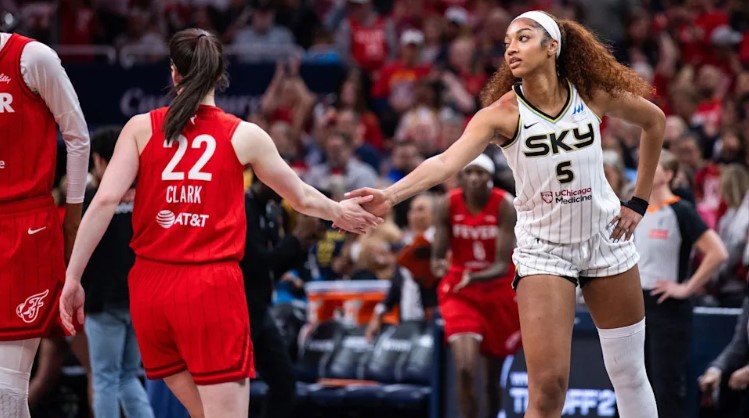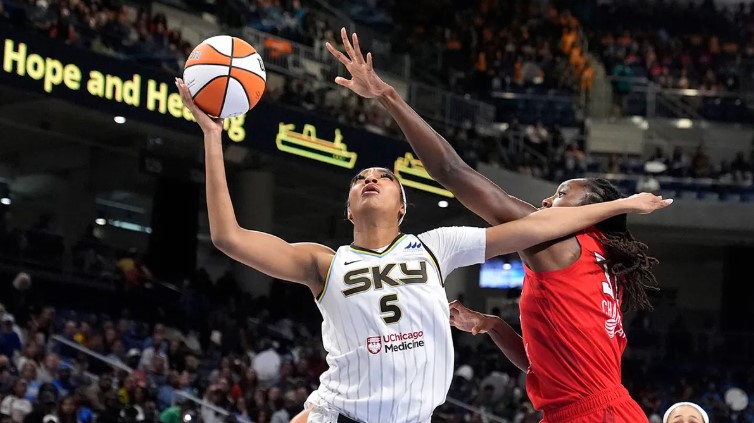The recent controversy in Indianapolis – where Reese was allegedly booed with hate speech by fans – is a clear example of how the public jumps to conclusions without verification, simply because they “want to believe” something rather than “know for sure.”
No one—not you, me, or the media—really knows what happened that Saturday, but many were quick to take sides, as if deciding right from wrong was a matter of voting or emotion.
The Chicago Sky claimed to be defending their players, and Reese confirmed she felt “loved,” but the team’s awkward media actions suggested an unprofessional and possibly counterproductive defense.
In Indianapolis, a reporter had just asked a follow-up question about the controversial foul, but Sky’s media staff intervened as if Reese was someone who needed to be protected from the very conversation she was participating in as an insider.
The intervention continued several times at the press conference afterward, leaving one wondering: did Sky not trust Reese enough to handle the media herself, or was the team afraid of something bigger—a truth that was not easily controlled?

Even General Manager Jeff Pagliocca declined to speak, leaving the role of spokesperson to Coach Tyler Marsh after a tense exchange on the practice field – a rarity in any professional sports organization in the United States.
Unfortunately, this overprotectiveness has only made Reese more isolated from the public, as any reasonable questions are blocked as if transparency is a threat, not a fundamental principle of modern sports.
From the 2023 NCAA Finals between LSU and Iowa, to the controversial Sky vs. Fever series, the media has ceased to be an objective observer, and has become a combatant with bias, emotion, and sometimes even dubious intentions.

Reese celebrated after Chennedy Carter fouled Clark, called a hard foul in the rematch, and talked about the “special whistle,” but none of those details were enough to make her the target of months of hateful attacks.
The reality is: sports fans—especially women’s basketball fans—are missing out on a generation of explosive talent because we don’t know how to talk to each other without falling into the pits of prejudice, bigotry, and social media petulance.
If the WNBA and its followers don’t learn to distinguish between debate and attack, between valid criticism and thoughtless scorn, then it will be the players—like Reese, like Clark—who will pay the price for our collective failure to have fair dialogue.

